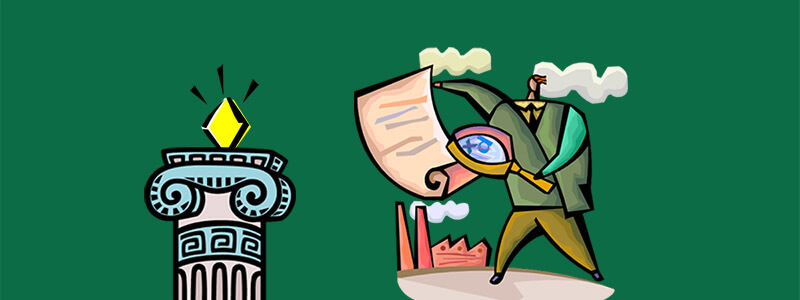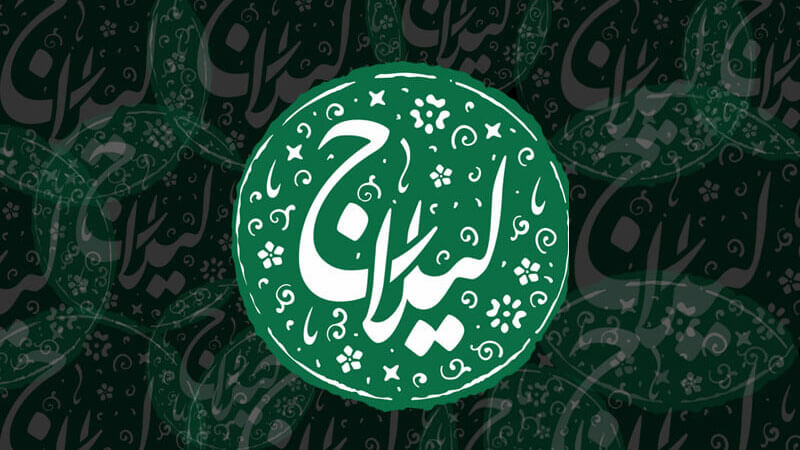Who is Leylaj? What does Leylaj mean? In the following, in addition to the biography of the famous Iranian gambler and his story, you will get to know this word and its reflection in Persian history, culture, and literature.
Leylaj (in Persian: لیلاج) is a widely used word in the Persian language, which of course is not limited to linguistic usage and has had various reflections in the history and culture of Persian speakers, especially in Iran, so that even today, many cultural and artistic works are produced under this name.
It is worth mentioning Leylaj Magazine, the first specialized magazine for gambling and betting in Persian, is inspired by and also honors this historical figure’s name.
Leylaj
Leylaj
This word is only used only in relation to gambling, and accomplished and veteran gamblers are likened to Leylaj.
Who is Leylaj?
The correct name of Leylaj, as it is given in historical books and cultures, is Abul Faraj Muhammad Ibn Abdullah, known as Leylaj or al-Lajlaj, who was known as Leylaj in the eyes of the people.
Leylaj’s biography
According to some narrations, Leylaj was a student of Abu Bakr Soli (who was involved in poetry and literature during the reign of Caliph al-Muktafi Bi-llah, and was the greatest chess player of his time). According to Solar Hijri Calendar, he lived in the late 4th and early 5th centuries and mastered chess, backgammon, and knucklebones games.
His father, Saqqah bin Dahru or Safa bin Daher, was a sage from India and one of the courtiers of the Bani Abbas caliphs, who taught them secrets of governance and statesmanship. Because he was a pious sage, he didn’t gather any money and wealth and after his death, he left nothing but a worn-out carpet and a few volumes of books.
After the death of his father, Leylaj became the breadwinner of the family, but he had neither art nor any inheritance from his father to support his younger brothers and sisters. As a matter of necessity, in his early childhood, he encouraged neighbors’ children who had some coins to gamble and win their money.
By the way, a colonel who lived in the neighborhood, who had witnessed his need and talent in gambling, taught Leylaj all tricks and wiles of gambling. Intelligent and gifted as he was, young Leylaj mastered the tricks and subtleties of gambling so much that no dark point in guiles of dice, cards, or knucklebones was left to him. He went so far as to invent a type of chess later, and as it was said his father was the inventor of chess and he was the master of chess.
He used to play so masterfully that no one had the heart to play with him, and poets of Iran would also use examples of his skill and mastery in their parables. The great Iranian poet, Saadi, mentions him in the following verse:
I wrote truthfully if you read truthfully, it’s not Lajlaj’s fault if you don't know chess.
Molavi (Ru1mi), another famous Iranian poet, deployed Leylaj’s fame in his poems like this:
The one who induces Leylaj to play chess is shady and is deviated (in path) Like the ferz on the chess board
Note: (The ferz is predecessor to the queen in chess, a weak piece only able to move or capture one step diagonally, originating from the Persian game of Shatranj. Queen Chess- Wikipedia)
Zahouri also writes in his poems:
I'm wearing a shining robe of contentment in living a simple life, but I still can taunt Leylaj in backgammon
Leylaj was very capable and talented in gambling, and in the description of his extraordinary genius, it is said:
- In the game of backgammon, Leylaj could throw the dice as he wished. Nevertheless, he would lose a few rounds at the beginning so that the opponent would be encouraged and present whatever money and assets he had. Afterward, he would throw a few favorable dice and would make the poor person miserable and bankrupt.
- He was unmatched in the game of knucklebones and would defeat anyone in a few minutes. In knucklebones, three stones or knucklebones are thrown in the air to sit in the middle of the board which might result in different patterns each of which has a distinctive name. Where all three knucklebones thrown up in the air sit on the same side (all three horses), the pattern is called Naghsh. Where the three knucklebones thrown up sit on different sides and result in one horse and two donkeys, the pattern is called Seh-Palasht.
- Leylaj would throw knucklebones in a way that the outcome would always be Naghsh. He had such control over knucklebones in his hand that they would sit on the board in any desired pattern.
- He knew a thousand tricks and guiles in the card game called Ganjifa. He knew the fifty-two cards even from the back of the cards. In addition, he was an expert in reading facial expressions and could tell from the opponent’s lips and mouth, the distortion of the face, the way of looking and talking, concluded whether he had the upper hand or was bluffing.
With these qualities, Leylaj moved from Shiraz to Hamadan at a young age. His fame spread all around and attracted veteran and experienced gamblers from Hamadan and other western Iran cities. He robbed them of all they had and left them all bankrupt.
Many gamblers had lost their dignity, and even their wives and daughters, in gambling and committed suicide due to intense grief and desolation.

It didn’t take long before the renowned and wealthy people of that region, including the judge of the city of Hamadan, whose children were led astray by Leylaj, tried to kill him and imprisoned him on charges of crime. This happened during the reign of Shams al-Dawlah Deilami in Hamedan and Isfahan, and Avicenna (al-Sheikh al-Ra’is Abu Ali Sina) held a ministerial position in his court. Leylaj appealed to Avicenna and promised not to gamble anymore.
The only thing that the prominent philosopher of Iran could do was to save him from execution, but by command of Shams al-Dawlah, his left hand was amputated for the crime of seizing people’s property through gambling which itself is considered a form of theft.
Leylaj quit gambling for a few years and was living off his savings when three gamblers who were more experienced than him came to his house and beguiled him with gold bars they had brought with them.
Leylaj’s eyes were dazzled seeing the gold bars. He overlooked his repentance and started playing. The three mentioned gamblers took all his wealth and savings, even his clothes, with their fake dice and their own known cards and a thousand other tricks that Leylaj was unaware of. Then, they knocked him unconscious and left the house.
Leylaj came to his senses when his wealth was all gone and he had no capital left, except for a few stubborn and spiteful enemies in Hamadan. As Saif Esfarangi said:
Like Leylaj, there will be no escape from the game of cards at the end
Once again, he sought for advice from Avicenna, and by his order, left Hamadan for Shiraz where he settled in an old bathhouse’s hothouse.
Despite the fact that he had entered the city anonymously, gamblers in Shiraz were informed of his arrival and rushed to him in droves. Nevertheless, no threat nor encouragement could induce him to change his firm decision which he had made after Avicenna’s advice and instruction. He rejected them all and devoted the rest of his life to living in the bathhouse’s hothouse, praying and repenting for his past sins.
This continued for years until the Emir of Fars came to him. Emir of Fars, who was a good and worthy man, had a son who had turned totally deviant as a result of socializing with unscrupulous and morally corrupt people. He gambled, drank wine, and went to infamous and corrupt neighborhoods late at night.
No matter how much the Emir counseled and advised the son, it did not help. Once he found out about Leylaj’s life and his bitter and unfortunate experiences, he reached out to him for help to save his son.
Leylaj accepted Emir’s request and invited his son to his place of residence, the bathhouse’s hothouse. Emir’s son accepted his invitation dearly and rushed to the hothouse in desire for gambling.
Leylaj welcomed his guest warmly, and unlike some immature preachers and advisors who immediately start to forbid, condemn and blame, asked the son mildly and gently:
What kind of gambling do you know?
Leylaj
answered:
All sorts of gambling.
Son of Emir Fars
Leylaj first played chess with him and defeated him with only a few moves. He was such a master at playing chess that the contemporary ode writer Adib al-Mamalek Farahani said about him:
Muhallebi has been left after Muhalleb, just like chess is left in the world from Lajlaj
Note: (Legend has it that muhallebi [a milk and rice pudding] was introduced into Arab cuisine in the late seventeenth century by a Persian cook from what was then Sassanid Persia (224-651), who served it to an Arab General by the name of al-Muhallab Ibn Abi Sufra. Muhallebi- Wikipedia)
Then, he pulled the backgammon board forward and in a blink of an eye, with brilliant strategies and throwing favorable dice which are the way of veteran backgammon players, blocked his opponents’ pieces. At that moment, he took the knucklebones in his hand and asked:
Which pattern would you like? Naghsh or Seh-Palasht?
Leylaj
Son of Emir Fars said:
Naghsh.
Son of Emir Fars
Leylaj said:
I will throw these three knucklebones into the air through the hole in the roof of this hothouse. You go on the roof and see the pattern they have made on there.
Leylaj
Emir’s son agreed, and Leylaj threw the knucklebones up through the hole in the roof with his magical fingertips. When Emir’s son went to the roof of the bathroom and saw the knucklebones, he was left speechless because, as he had asked, the pattern of Naghsh was formed on the roof.
Emir’s son lost his patience and asked:
Master Leylaj, you play so expertly in all kinds of gambling, then, why don’t you have any wealth and savings, living in the old bath’s hothouse because of poverty?
Son of Emir of Fars
Leylaj said:
Son! I had everything, and I have ruined many families by these damn games. You should know that this is where gambling leads. When Master Leylaj, after years of playing, is living in an old bath’s hothouse, the end for you and those like you who have not yet learned the alphabet of gambling is already known.
Leylaj
There is no win in gambling because, from the beginning, they said gambling is gambling
Note: (In persian, While the word “baazi” meaning “play” then again “baaz” meaning “lose” so is incorporated in the word “ghomarbaaz” meaning “gambler”. That’s just point to a fun point of view.)
Later on, in the middle of the night, he took Emir’s son to the pub to witness all the awkward behavior and rude and obscene words of drunken and senseless people who were fighting each other like crazy.
Afterward, in the morning, when it was not yet twilight, he guided Emir’s son to a brothel and showed him how all those prostitutes who looked heavenly and playful at the beginning of the night all by make-up, really looked with their unpleasant swollen faces and eye boogers, like cats and otters crawling out at night. Emir’s son was so disgusted and saddened to see those horrible scenes that tears fell from his eyes because of his sadness and regret.
Once Leylaj saw himself close to his purposes, raised his head and said:
Child! I brought these living scenes in front of your eyes so that you would know in what terrible abyss you are treading and with what lethal poisons you are fulfilling the egoistic wishes and desires.
Wise and thoughtful people never step in such paths and places, and do not satisfy desires of the soul except through healthy entertainment and understanding of spiritual pleasures. Come back soon and take the path of the wise, otherwise it is not unlikely that you will suffer my fate and fall to the misery I have been through.
Leylaj
Emir’s son, who had these instructive words hitting his brain and nerves like a sledgehammer, pledged to Leylaj that he would not be involved in these matters anymore and would be a decent and worthy son for the Emir of Fars.
Leylaj Terminology
Following, we have gathered some of the meanings and connotations attributed to the word “Leylaj” in some Persian dictionaries and encyclopedias:
Persian Amid Dictionary
Leylaj (Persian: لیلاج ): symbolizes an accomplished gambler; originally, the name of Abul Faraj Muhammad Ibn Ubaidullah (died: around 970 AD), a famous and great chess player who lived in Shiraz, at the service of Adud al-Dawla, and authored the book of ‘Chess Configurations’. It is said that he lost his entire belongings in gambling.
Persian Amid Dictionary– Leylaj
Dehkhoda Dictionary
Leylaj (Persian: لیلاج ): Lajlaj; gambling; altered form of “Lajlaj”; as acknowledged among people, the name of the inventor of chess and backgammon.
Dehkhoda Dictionary – Leylaj
Mo’ein Persian Dictionary
Leylaj (Persian: لیلاج ): Someone who is accomplished at gambling; skilled proficient gambler.
Mo’ein Persian Dictionary- Leylaj
Azad Dictionary – Application
Leylaj is the name of the board on which they gambled in ancient times, and a proficient gambler was called Leylaj. Nowadays, the term is used to emphasize on one’s competence and proficiency. For example, it is said; He is Leylaj at his profession.
Azad Dictionary – Leylaj
Azad Dictionary – Background Story
Abul Faraj Muhammad Ibn Abdullah, who is recognized among people by names Leylaj and Lajlaj, lived in late 4th and early 5th centuries according to Solar Hijri Calendar, and, as mentioned in the historical books, mastered chess, backgammon, and knucklebones games. Therefore, he was called the preceptor and the master of gamblers.
His father, Safa bin Daher, was a sage from India and one of the courtiers of Bani Abbas caliphs. When he was young, Leylaj moved to Hamedan and was imprisoned there, and was saved from death by Avicenna’s intervention. But his left hand was amputated.
He quit gambling for a few years until he lost all his possessions in a game. Then, he moved back to Shiraz by Avicenna’s help, and settled in an old bath’s hothouse. This is why in informal conversation, especially among children and teenagers, someone who has mastered games and gambling is called Leylaj or Leylaj of a specific art or profession.
Azad Dictionary – Leylaj
Tehrani Accent and Dialect
Veteran gambler, judge of gamblers, gambling guru
Tehrani Accent and Dialect – Leylaj
Synonyms
Broke, Prodigal, Lajlaj, al-Lajlaj.
Synonyms – Leylaj






1 Comment